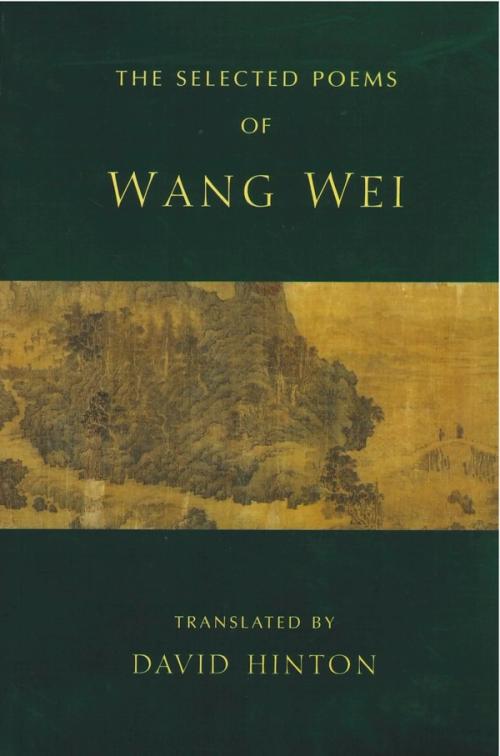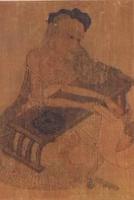The Selected Poems Of Wang Wei
Poetry by Wang Wei
Translated from Classical chinese by David Hinton
Wang Wei (701-761 C.E.) is often spoken of, with his contemporaries Li Po and Tu Fu, as one of the three greatest poets in China’s 3,000-year poetic tradition. Of the three, Wang was the consummate master of the short imagistic landscape poem that came to typify classical Chinese poetry. He developed a nature poetry of resounding tranquility wherein deep understanding goes far beyond the words on the page—a poetics that can be traced to his assiduous practice of Ch’an (Zen) Buddhism. But in spite of this philosophical depth, Wang is not a difficult poet. Indeed, he may be the most immediately appealing of China’s great poets, and in Hinton’s masterful translations he sounds utterly contemporary. Many of his best poems are incredibly concise, composed of only twenty words, and they often turn on the tiniest details: a bird’s cry, a splinter of light on moss, an egret’s wingbeat. Such imagistic clarity is not surprising since Wang was also one of China’s greatest landscape painters (see cover illustration). This is a breathtaking poetry, one that in true Zen fashion renders the ten thousand things of this world in such a way that they empty the self even as they shimmer with the clarity of their own self-sufficient identity.
Paperback(published Jun, 01 2006)
- ISBN
- 9780811216180
- Price US
- 16.95
- Price CN
- 20
- Trim Size
- 6x9
- Page Count
- 128

